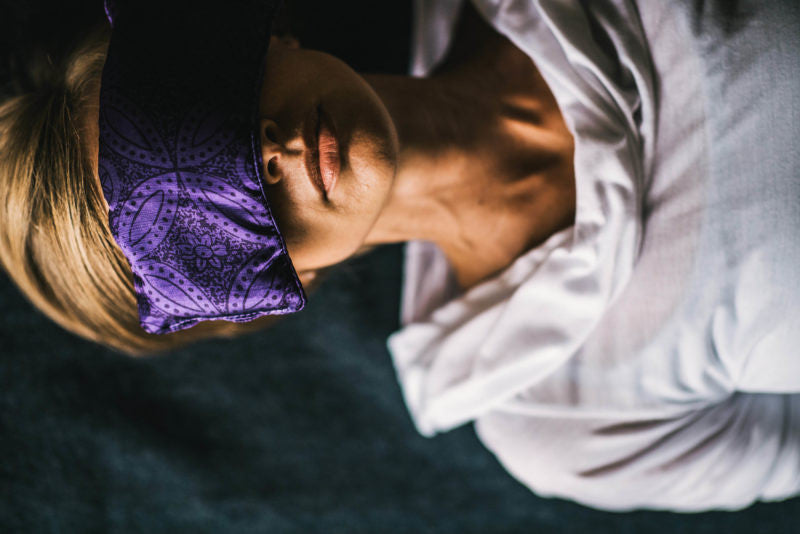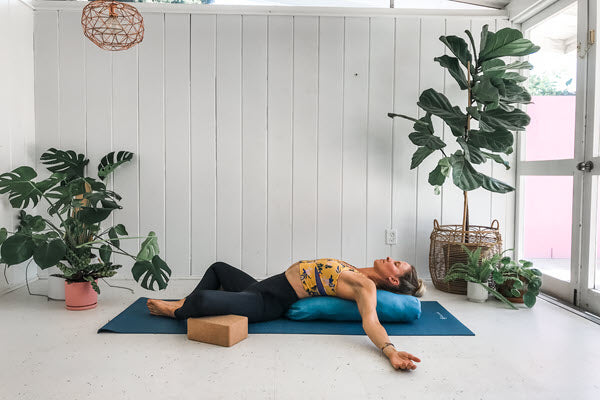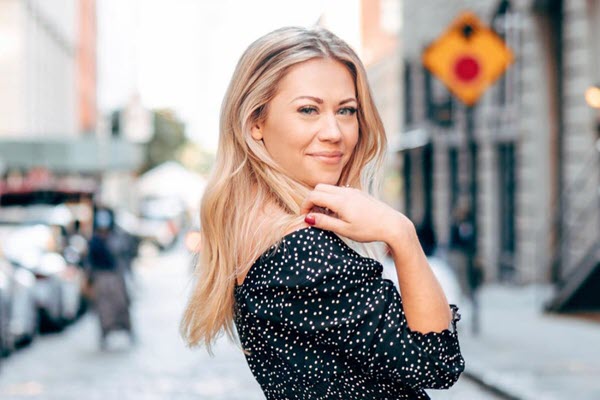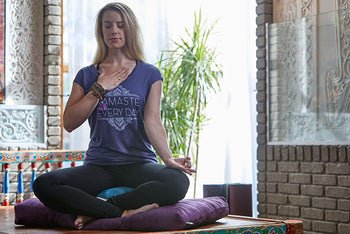Before You Take that Sleeping Pill, Take Dr. James' Advice

Awake at 3 a.m.? Dreading how you'll feel in the morning after tossing and turning half the night?
It's little consolation that more than a third of the country is losing sleep right along with you. And chemical sleep aides aren't necessarily the answer — especially if you're concerned about side effects or the potential for creating a dependency.
Despite extensive research showing that sleeplessness contributes to depression, chronic fatigue syndrome, fibromyalgia and a host of other serious ailments, sleep disruption is rampant in our American society. "Although every one of us requires healthy sleep, it is one of the least understood of all of our physiological processes," says naturopathic physician James Rouse, who regularly treats patients with sleep disorders at his family practice in Denver.
Healthy sleep actually starts during the day
Not surprisingly, nearly 50 percent of insomnia cases are due to stress or anxiety, according to the National Sleep Foundation. Yet the traditional route for treating insomnia is often to prescribe chemical sleep aids or other medications. Some of these medications have been shown to cause abnormal sleep patterns — worsening the problem rather than providing relief.
Dr. James points out that such medications aren't designed for long-term use and are often associated with negative side effects. They also tend to treat the symptoms of insomnia rather than the cause.
"What's frequently at the core of a sleep problem are physiological factors that are causing an imbalance in the body's natural chemistry," explains Dr. James. He says nutrition, exercise, and relaxation techniques can help realign that chemistry to help you get to sleep and stay asleep.
"Many people don't try to address sleeplessness until nighttime," Dr. James points out. "Healthy sleep actually starts during the day." He notes that daytime habits including the foods you eat are the keys to building what he calls "good sleep chemistry."
Daytime is the time to get sleep cycles back on track
A central element of his treatment approach with insomnia patients is a diet rich in nutrients that work to rebalance healthy sleep chemistry, as well as foods that can help induce sleep within minutes.
Foods for good sleep chemistry include those rich in nutrients such as tryptophan, a building block for serotonin and melatonin — brain chemicals that promote a feeling of calm. Other sleep-friendly nutrients include calcium, which can strengthen and calm the nervous system; and vitamin C, another essential for serotonin production. Everyday foods like cherries, almonds, and cheese are among the foods Dr. James recommends including in a sleep-supportive diet. And of course he encourages avoiding substances like caffeine, refined sugar, and alcohol, which he says can directly disrupt your ability to get a good night's sleep.
Exercise can also help with insomnia. "Regular physical activity helps the body release tension and has been clinically proven to improve sleep patterns," notes Dr. James, whose recommendations for insomnia sufferers include energizing morning strength training or resistance workouts and gentle, restorative evening yoga. He also suggests reserving conscious wind-down time in the evening, and prescribes calming breathing techniques, meditation, and other relaxation tools shown to promote more restful sleep.
What if you need to get to sleep now?
So what if you're wide awake and it's too late to undo the morning's "I am so late" donut or the afternoon's "just get me to 5 o'clock" candy bar? Dr. James recommends quick remedies like aromatherapy and snacks made with foods that contain some of the calming nutrients mentioned above. He also helps his patients identify characteristics of their sleeping area that may be keeping them awake; he often suggests eye masks, room darkening shades, calming music or white noise machines, turning the clock away from you, or turning the thermostat up or down.
Dr. James' Get to Sleep Fast Checklist gives quick tips on how to get to sleep now.
"Approaches like these are effective for the majority of patients," says Dr. James, noting that many regain healthy sleep patterns within one to three weeks. "Success can depend partly on how you approach it. I ask my patients to start by letting go of the idea of willpower and open their mind to willingness. Most people are surprised at what a difference a simple mental tool like this can make."
Dr. James advises sleeplessness sufferers to talk with a doctor first to rule out serious causes such as heart failure, kidney disease, Parkinson's disease, thyroid conditions, asthma, sleep apnea or cancer. But he notes that an extremely high percentage of patients simply need to fuel their body's natural ability to turn off the world and go to sleep.
Also in Blog

Body Peace & Personal Empowerment

Yoga for Swimmers: Poses for Strength and Mobility







